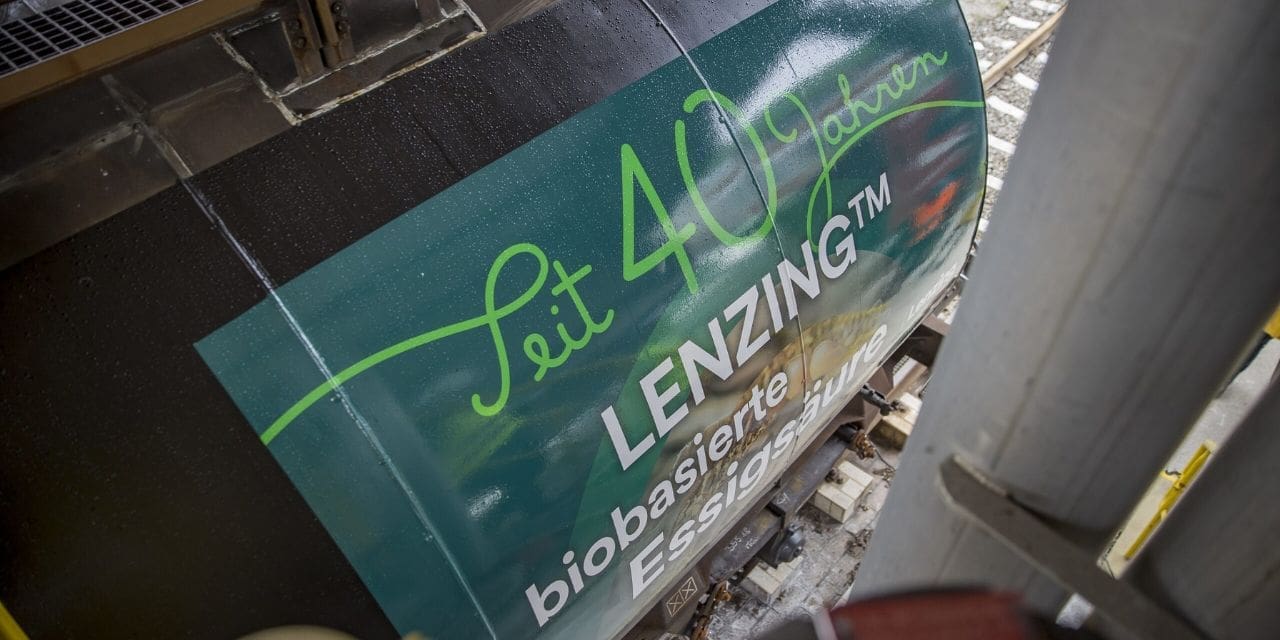Lenzing will launch its first carbon-neutral LENZINGTM Acetic Acid Biobased product to commemorate the momentous anniversary and address the expanding sustainability needs of sectors that primarily use materials derived from fossil fuels. The carbon neutral LENZINGTM Acetic Acid Biobased is created utilising sustainably obtained beech wood as a universal alternative for non-renewable raw materials like crude oil, much like the regular LENZINGTM Acetic Acid Biobased. This growth will produce a more sustainable supply chain with highly useful products across multiple industries by accounting for, lowering, and offsetting emissions during production operations. Customers of Lenzing in the food, pharmaceutical, cosmetics, chemical, and textile industries will now be able to select between acetic acid products with a decreased carbon footprint and those with a neutral carbon impact.
40 years of LENZINGTM Acetic Acid One of Lenzing’s core products for the biorefinery market is biobased, which is widely valued and trusted by clients in a variety of business sectors. Elisabeth Stanger, Senior Director Biorefinery & CoProducts, Lenzing Group, stated, “We are honoured to have our long-term clients and partners Evonik and Speyer & Grund Group join us to celebrate this important milestone as we continue to drive sustainability and circularity through ongoing product innovation. She continued, “By introducing carbon neutral LENZINGTM Acetic Acid Biobased to our portfolio, we provide a further sustainable alternative to fossil-based materials with an all-neutral carbon footprint and move closer to our objective of achieving net-zero by 2050.
Circularity and carbon neutrality advancements through wise use of priceless resources
The biorefinery idea developed by Lenzing ensures that all wood components are utilised. to provide pulp for Lenzing’s botanical fibres, products for its biorefinery, and bioenergy for the company’s facilities. For maximum carbon neutrality, Lenzing’s biorefinery locations are now virtually entirely energy self-sufficient. LENZINGTM biorefinery products are transported mostly by rail to ensure a low carbon footprint, with trucks being used in areas where rail transit is not feasible.
Lenzing works with ClimatePartner, a leader in the design, development, and implementation of corporate climate action programmes, to achieve net-zero carbon emissions through a combination of improved production efficiencies, the use of renewable energy sources, low-carbon materials, and the committed support of an external, nature-based carbon removal project. For example, to compensate for any leftover carbon emissions that Lenzing collaborates with ClimatePartner to promote and finance the conversion of a ceramic industry in Kitambar, Northeastern Brazil, to biomass as an energy source.
The plant is able to make roof tiles in a more environmentally friendly manner while reducing carbon emissions by using natural waste products like coconut shells as renewable biomass for its energy production. Along with aiding in the conversion to other fuels, the project also lessens deforestation in Brazil and prevents methane emissions that could be produced by the unchecked decaying of biomass.

